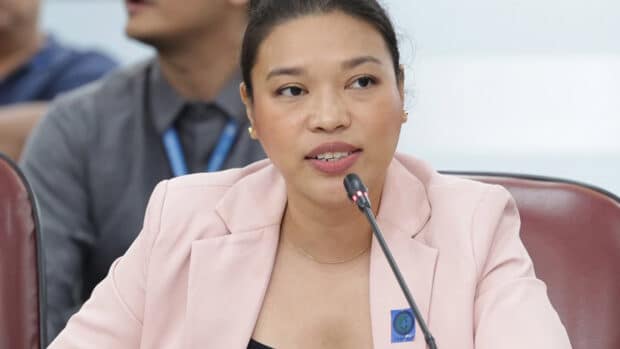Conti: Address ‘antipeople policies’ that enabled EJKs

MANILA, Philippines — The government must address not only law enforcement errors but also the actions of those in high offices and the “antipeople policies” that enabled extrajudicial killings (EJK), said a human rights lawyer representing families of EJK victims before the International Criminal Court (ICC).
Kristina Conti, ICC assistant to counsel, made the call as the Department of Justice (DOJ) reviews cold cases related to the alleged EJKs during the Duterte administration’s controversial war on drugs.
“’Spare no one’ is a tall order, and doing so in 60 days is even tougher. But with its broad authority, massive opportunities for discovery of evidence, and strong support from various government offices, we can only hope for the best,” Conti told the Inquirer on Saturday.
READ: DOJ chief creates task force to probe alleged EJKs during drug war
She was referring to Department Order (DO) No. 778 issued on Nov. 4 by Justice Secretary Jesus Crispin Remulla and his directive to hold accountable everyone who had a hand in the EJKs.
Article continues after this advertisement
DO 778 establishes a task force to investigate, build cases and file charges, if warranted, against perpetrators and those involved in EJKs during the brutal drug war waged by then President Rodrigo Duterte.
Article continues after this advertisement
It is also tasked to closely coordinate with and assist the House of Representatives quad committee and the Senate blue ribbon committee in their respective investigations into the drug war.
The DOJ is further required to submit an initial report within 60 days of the order’s issuance.
Transitional justice
Conti said the government had failed to act on the atrocities for the past eight years and had yet to acknowledge the “thousands who have been crying for help since.”
“While we think it is high time to conduct investigations and prosecutions into the extrajudicial killings, we urge them to pursue this as a measure of transitional justice. These killings should be seen not only as errors by law enforcement but also as actions stemming from those in the highest offices and from antipeople policies,” she said.
The creation of the DOJ task force is not the first time the government has moved to investigate alleged EJKs during the drug war.
In a House hearing last May, Solicitor General Menardo Guevarra, who served as justice secretary during Duterte’s term, said the DOJ had investigated over 900 cases of drug-related deaths. Of these, 52 cases with the strongest chance of leading to a trial were given priority, he said.
The 52 cases were only a portion of the 6,000 drug-related deaths officially acknowledged by the government. Rights groups, however, estimate the actual death toll from 12,000 to 30,000.
Not only civilians
Aside from civilians, 312 policemen died and 974 others were injured during the drug war, PNP chief Gen. Rommel Francisco Marbil said on Sunday.
In a statement, Marbil said Duterte had publicly committed to supporting those law enforcers involved in the campaign but said “there was no official record that these commitments were fully realized.”
He added that 214 police officers faced 352 criminal charges from July 2016 to June 2022. In addition, 195 officers were dismissed over the same period and 398 others were facing dismissal “for various reasons.”
“The numbers remind us that the impact of the antidrug campaign was deeply felt by our police force as well,” he said. “The data show that while civilians were affected, many officers also paid the price in various ways.”
Meanwhile, Justice Undersecretary Raul Vasquez addressed Duterte’s previous admission in a Senate hearing about the existence of a “death squad” that carried out his orders to liquidate criminals during his time as mayor of Davao City.
“That will be thoroughly studied … the DOJ will later on handle the hearings on that matter. It will be examined and weighed whether the statement made by former President Rodrigo Duterte can serve as strong evidence, but under the law, an admission against interest is really something solid,” Vasquez said in an interview with dzBB on Sunday.
“However, we don’t want to jump ahead of the process because the Department of Justice, through the National Prosecution Service, will be the one to investigate that matter later on,” he added. —with a report from Frances Mangosing